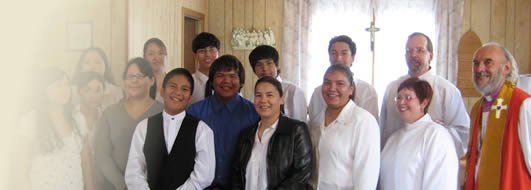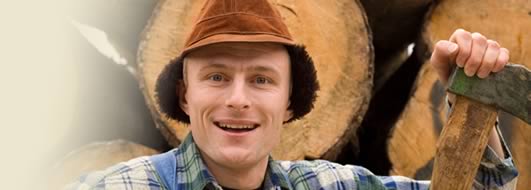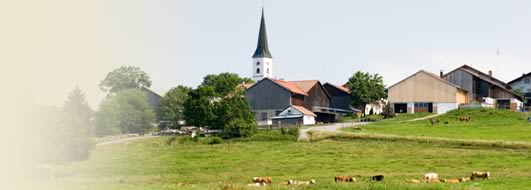
Slide title
Write your caption hereButton
Slide title
Write your caption hereButton
Slide title
Write your caption hereButton
Slide title
Write your caption hereButton
Slide title
Write your caption hereButton
Slide title
Write your caption hereButton
Slide title
Write your caption hereButton
Slide title
Write your caption hereButton
Slide title
Write your caption hereButton
Slide title
Write your caption hereButton
DMIN & CERTIFICATE PROGRAMS
DOCTOR OF MINISTRY in CONTEXTUAL and PRACTICAL THEOLOGY
The Saskatoon Theological Union is offering this accredited graduate degree.
For more information, please contact each college for more information.
TESTIMONIALS
Rev. Dr. Kevin Driver
Banff's Full Gospel Church
I completed the Rural Ministry and Community Development doctoral program in 2016. For several years my leadership team and I at Banff’s Full Gospel Church were looking for an opportunity to continue my education without having to leave the local church setting.
I discovered this doctoral program while searching for a rural church conference happening in Southern Saskatchewan. After meeting with Dr. Cam Harder, we knew this was the program we were looking for. It is a cohort model that was modular in nature and focused on active ministry. (Thanks Dave, Tim, and Elaine!). The program entailed pre-course work of readings and assignments, 5 days of intensive class interaction, and post-course work of assignments and readings. Each Modular was offered in 3-month increments. Then a final Thesis project focused on benefitting my local situation.
The course work is focused on helping you contextualize your church and community for ministry impact. Working through the degree built upon what we were already doing and it positioned us well to become more active in the local community. Currently, I am still pastoring in Banff and chair a Local Immigration Partnership, funded by the IRCC, that brings together helping agencies across the Bow Valley. Thanks to the Saskatoon Theological Union I feel confident in my ministry here and look forward to many more years of serving my church and larger community.
Rev. Dr. Robin Haensel
Director of Church Development
Canadian Midwest District of the C&MA
CiRCLe M Board Member
My journey into the Doctor of Ministry program began in 2012, when I was serving a church on the east side of Saskatoon. Enrolling in a doctoral program was the furthest thing from my mind at that time. However, I was contacted by Dr. Cam Harder and Dr. Keith Walker inviting me to participate in a research project being conducted by a group of Doctoral students investigating the qualities of a positive neighborhood. I happily participated, enjoyed the experience, and most importantly, met Dr. Walker and Dr. Harder who would later invite me into the next cohort of students!
In September 2013 I had made the transition from pastoral ministry at a local church, to working in the District Office of our denomination as the Director of Church Development. This was a significant shift for me, after 25 years of pastoral ministry, 15 of which had been in rural Saskatchewan. It was shortly after this transition that Dr. Harder invited me into the 2014 cohort of the Doctor of Ministry Program in Rural Church and Community Development. It was an intriguing opportunity, given that the majority of the churches in our District, covering Manitoba, Saskatchewan, Northern Ontario and Nunavut territory would fit into the rural church category!
Growing up in west-central Saskatchewan during the 1950’s – 1970’s provided me with a deep love for the people who settled and continue to populate the western grain belt of Saskatchewan. A tremendous independence coupled with a passionate community spirit created tension and strength within these prairie people. A love of history, partially gained as a young boy visiting the senior’s home where my parents worked, opened my eyes to realize the great cost by which this hometown of mine, and neighboring communities, had come into existence. One such senior, Alice, perhaps sensing my intrigue, would tell story after story of her adventures as a pioneer on the wide-open prairies. My admiration of the pioneer settlers grew as I learned more and my thankfulness for their perseverance grew as well. I grew up in an era when many of the original settlers were still alive and they were able to personally tell stories, not only of their perseverance, but also of the value the church had provided as the various communities developed and grew. Right from my earliest years, I have felt a connection to the early history and the settlers of my home community.
As those early settlers themselves passed into history, as economic forces put pressure on agriculture, and as industrialization of farming methods increased, many previously vibrant villages and towns began to slowly wither and die. A sense of hopelessness seemed to fall over a once hope-filled land. My own hometown continues to survive, but many others, including places where many of my friends grew up, no longer exist. An abandoned house or two are often all that remains to mark a once vibrant village! However, the land is not entirely vacant. Farm families continue to express their independent spirit as they work the land; now owning what once might have provided sustenance for 10 or 15 farm families and several other families that provided a wide variety of services to their community. This current reality has caused even greater isolation, in an area that historically felt isolated because of transportation and communication issues, as still more of the smaller communities disappear.
I recognized, in the invitation from Dr. Harder, that there was an opportunity to address some of the challenges our rural areas were facing. So, many years after having graduated from Bible College, I hesitantly began the application process. In November of 2014 the real journey began as I was introduced to several other individuals that would travel with me.
It was a great adventure! Friendships were forged, some remain strong even though we do not see one another often. Some of the opportunities that presented themselves in 2014 as I began this journey have been fulfilled; new opportunities have arisen. My passion for the Church of Jesus Christ flourishing in rural and sparsely populated communities has increased and the opportunities have multiplied! One of the greatest opportunities was the development of multi-denominational partnerships.
In January 2016 I participated in a class entitled, Preparing for Ecumenical Ministry with Dr. Sandra Beardsall. My fellow students were from the United Church, the Anglican Church, the Roman Catholic Church and a Lutheran-Anglican joint ministry, while my denomination is the Christian and Missionary Alliance in Canada. In many ways I felt this was a pivotal point in my journey. The instruction was insightful, the assignments were great learning experiences and the conversations with the other students were transformative!
The challenges the church faces in providing spiritual care to folks in rural and sparsely populated regions will not, indeed cannot be met using traditional paradigms of the church. We need each other, we have much to learn from each other and we can be better together.
E.H. Oliver, who was instrumental in founding and then first President of St. Andrews College, wrote the following in 1927
Neglected, these … Canadians will contribute towards the paganizing of our Country and will themselves suffer moral shipwreck. … I wonder if a voice will rise up against us. [Sic] “I was a stranger … and you did not visit me. I was a lonely settler and you said, I will make profits out of your wheat, but I will let you eat out your soul in the desolation of the frontier and I will not come to you nor send a messenger of the Word.”[1]
The challenge of providing ministry and spiritual care in rural and sparsely populated communities continues to be great. The Doctor of Ministry program offered by the Saskatoon Theological Union invites individuals into the conversation regarding how some of those challenges can be met. It provides an arena for those individuals to engage in very practical ways, ways that can make a difference
Why not consider this as your invitation to investigate? God may be calling you into a new journey!
[1] “The New Outlook,” Toronto, November 2, 1927, 4, as quoted by Lindsay Reynolds, Rebirth, Willowdale, ON: The Christian and Missionary Alliance, 1992. 203.
Rev. Tim Wray
Lutheran Church of the Master, Airdrie, AB
CiRCLe M Board Member
Most continuing education opportunities take a pastor away from their parish. The power of this DMin program is that it pushed me to learn alongside my parish about the community that we were trying to reach. We were all enriched by the interplay of academic resources and local knowledge. My capstone project curated the rural experience of young adults through their own photographs and reflections. Friendships were built, generations were bridged, the community was celebrated and a precious glimpse into the world view and theology of our neighbourhood young people was brought to the fore. At the completion of the program I really felt grounded and equipped to engage a context that is in constant change.
Follow Us
All Rights Reserved | CiRCLe M Centre for Rural Community Leadership and Ministry
Powered by Churchweb Canada
